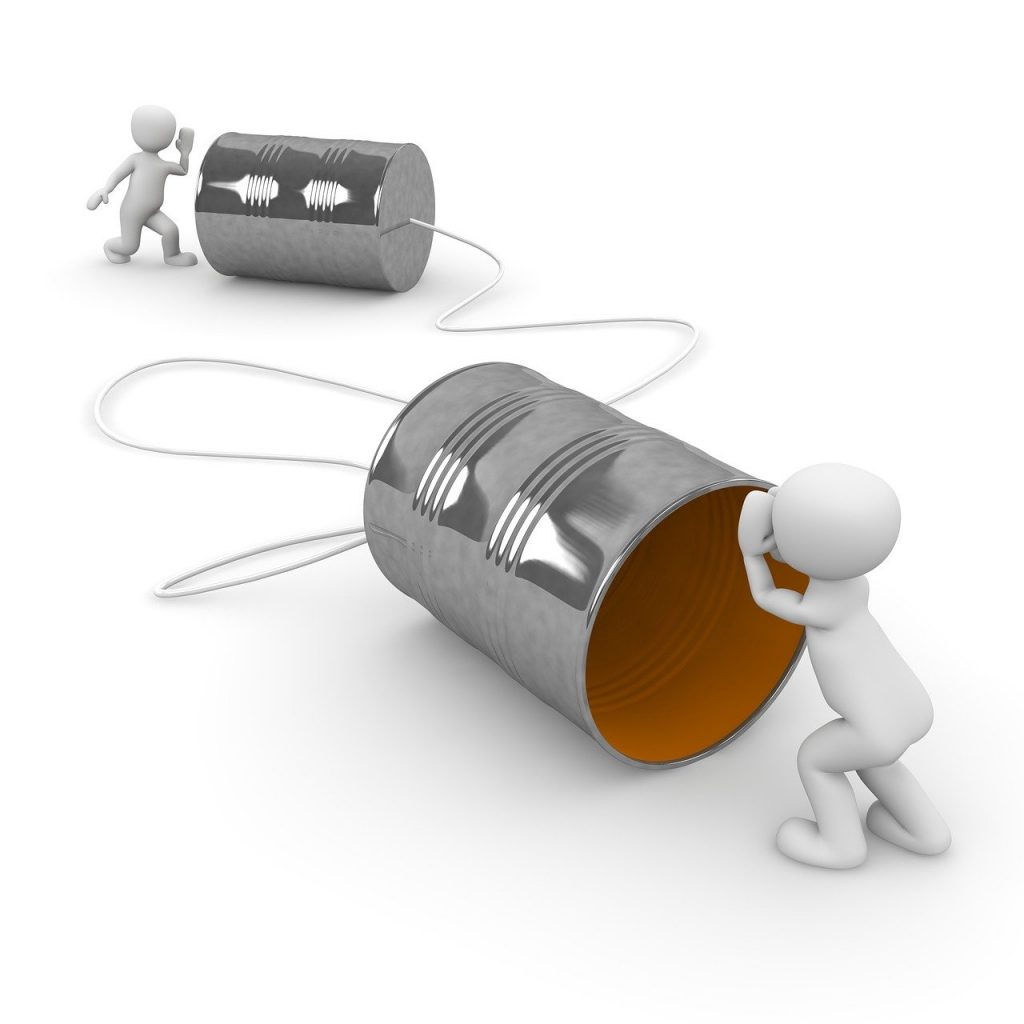
Business development, aka Rainmaking, has been and will always be about communication and trust.
You need exceptional communication skills to build trust and confidence in your abilities to help your clients and potential clients. And never has this been truer than at this time in history.
The global pandemic has only emphasized the need for attorneys to be able to communicate information that will be helpful to their clients. But it is so much more than just sending out emails on the firm’s COVID-19 resources.
Real communication skills include:
Your Listening Skills:
Almost 10 years ago, in Rainmaking Recommendation #15 I explained that there is a difference in hearing and listening:
“Hearing is a biomechanical attribute that most people with two ears can do. However, usually, when the other person is speaking, we are often just waiting for our chance to respond – whether it is to prove what we know or just to hear ourselves talk.
Listening is an actual skill that can be learned and when used effectively creates a relationship with the speaker that can morph into business. When you really listen to others, giving them your full awareness, not allowing for any distractions to divert your attention (whether in person or on the phone), and truly understand what they are saying, they naturally will like you and trust that you can help them with their problems.
Then and only then can you respond to what they are saying.”
Your listening skills are more important than ever. Since we are not able to be in a room face-to-face with people these days, you must stop everything you are doing and concentrate on what the other person is saying. When you are on the phone, you must start listening not only to what they are saying but how they are saying it. How does their voice sound?
When you are using a virtual meeting platform (like Zoom, Skype, Facetime) look them in the eyes when you are listening and try to determine what they are feeling.
Are they tired? Excited? Scared? Determining their emotions both verbally and non-verbally will help you to work on the next important communication skill.
Your Empathy Skills:
The ability to discern our own and other people’s emotions is Emotional Intelligence. But the attributes that make us great lawyers – logic, and intellect, the desire to be autonomous – do not always make for the most empathetic individuals.
Since the world went into self-quarantine, I have been coaching my lawyers to call up their clients to see how they are doing. Maybe you can help them with something from a legal standpoint, but more importantly, maybe you can just use your new-found listening skills to determine how they are feeling.
Right now, your clients are seeking someone to listen to them. This is an incredibly stressful time for everyone. People are trying to juggle work, family, emotions all at the same time. And while I know it is also stressful for you, studies have shown that helping others improves our moods.
But empathy, the ability to understand and share another person’s feelings, is most often equated to when times are tough. Empathy is also the ability to share humor with another as well.
Your Ability to Ask Questions:
This one should be easy for most attorneys. Between depositions and interrogatories, you are used to asking questions. However, interpersonal questions differ considerably from those you would ask during litigation or even during a transactional matter.
In litigation, you prepare and are ready for the most likely responses from your witness. They always say, never ask a question that you don’t already know the answer.
In speaking with people outside of the deposition, you want to ask questions to obtain more information without knowing what may or may not come out of their mouths. And, you listen with empathy to the answers. Then ask a follow-up question and listen again and so forth. You are not interrogating them. You are eliciting information that will help you help them both personally and from a legal standpoint when necessary.
During these extraordinary times, ask questions of your clients, potential clients, and referral sources that you might not have ordinarily asked. Ask them about their family, their home life in quarantine, and their moods. People really just want an opportunity to have someone listen to them.
The most important thing you have to understand when you are communicating with potential clients, current clients, or even referral sources is that you need to tailor your tactics and words to their particular styles. Remember, “It’s not what you say, but how you say it.”
While the world will not remain in quarantine forever, and hopefully it will be sooner than later, communications skills will be necessary for your entire career.
- If you are a mid-level associate who would like to become a partner or a partner looking to become a Rainmaker and are interested in individual coaching but would like to take it for a test drive, schedule your FREE Rainmaking Coaching Session
- If you are a law firm leader and would like to discuss bringing a training program (virtually for now) or a Rainmaking Webinar (with Ethics CLEs) in-house please email me.
Speak Your Mind